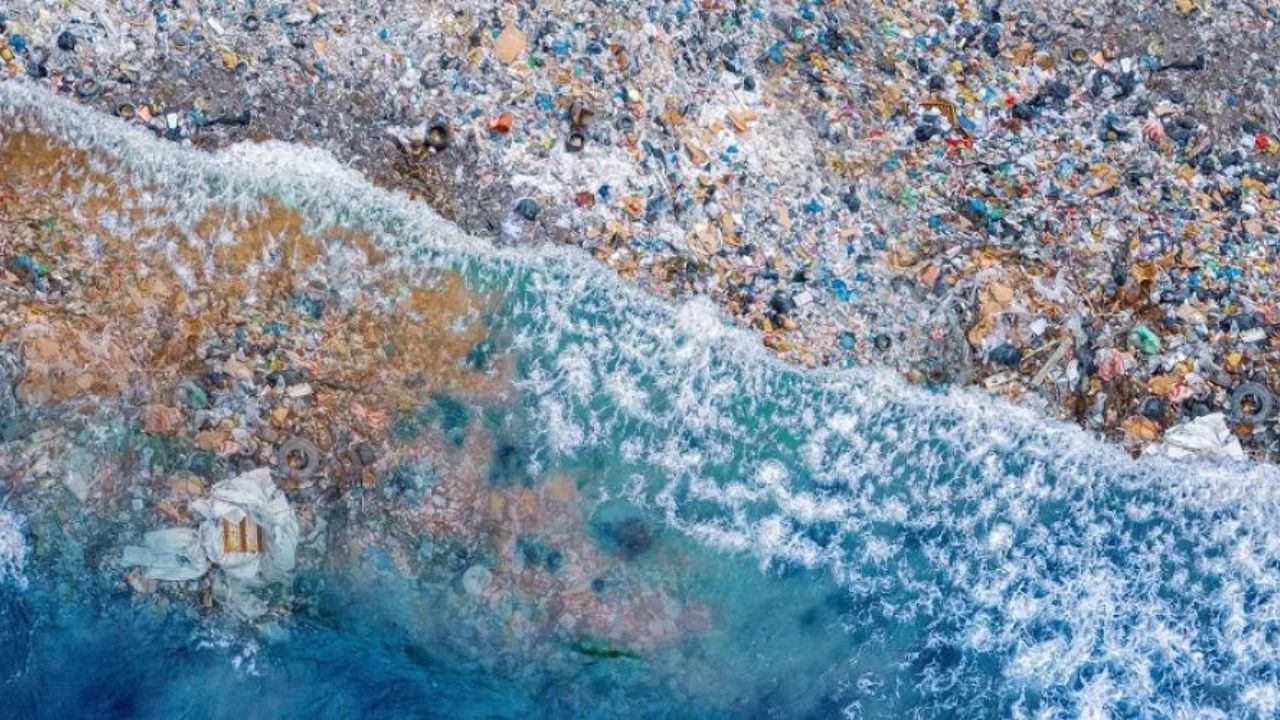Plastic pollution has become one of the most pressing environmental challenges of our time, with devastating effects on marine ecosystems and human health. The ubiquitous use of plastic in our daily lives has led to an alarming increase in plastic waste, a significant portion of which ends up in our oceans. As plastic degrades over time, it breaks down into smaller particles known as microplastics. This plastic waste and the proliferation of microplastics have contributed to climate change and global warming in various ways, highlighting the disturbing link between plastic pollution and the planet’s environmental crisis.
The impact of plastic waste on climate change begins with its production. The manufacturing of plastic requires the extraction and processing of fossil fuels, such as oil and natural gas. These processes emit substantial amounts of greenhouse gases, notably carbon dioxide and methane, into the atmosphere. As the demand for plastic increases, so does the extraction of fossil fuels, exacerbating greenhouse gas emissions and furthering the problem of climate change.
Once plastic products reach the end of their useful life, they often end up in landfills or, more alarmingly, in our oceans. Marine litter, consisting largely of plastic waste, has become a pervasive problem worldwide. The plastic in the ocean can persist for centuries, continually releasing greenhouse gases as it undergoes a slow process of decomposition. This prolonged release of carbon dioxide and methane adds to the overall greenhouse gas burden, contributing to global warming and climate change.
Microplastics, the smaller fragments of degraded plastic, present an equally concerning aspect of plastic pollution. These minuscule particles pervade marine ecosystems, and their impact on climate change is particularly worrisome. Microplastics are ingested by a variety of marine species, including zooplankton, fish, and even larger marine mammals. As plastic particles are consumed, they can disrupt marine food chains, leading to reduced biodiversity and ecosystem imbalance.
Moreover, microplastics play a significant role in altering the Earth’s radiative balance. As they float on the ocean’s surface, they can absorb solar radiation and affect the reflection of sunlight. This phenomenon, known as the albedo effect, can lead to changes in ocean temperatures and weather patterns, ultimately influencing the Earth’s climate. Additionally, microplastics can act as carriers for other harmful pollutants, exacerbating their impact on the environment and human health.
The link between plastic pollution and climate change goes beyond the direct effects of plastic waste. The disposal and incineration of plastic waste also contribute to greenhouse gas emissions. When plastic waste is incinerated, it releases toxic pollutants and greenhouse gases, further accelerating the rate of global warming. The incineration of plastic waste has become a common practice in many regions, exacerbating the environmental crisis and reinforcing the vicious cycle of plastic pollution and climate change.
Furthermore, plastic pollution affects marine ecosystems and disrupts their ability to sequester carbon dioxide. Oceans play a vital role in absorbing carbon dioxide from the atmosphere, acting as a carbon sink. However, plastic pollution jeopardizes this natural process. The presence of plastic debris alters the marine environment, impacting the growth and health of marine organisms such as phytoplankton and coral reefs, both of which play crucial roles in carbon sequestration. Disrupted marine ecosystems are less effective at capturing carbon dioxide, leading to higher levels of this potent greenhouse gas in the atmosphere.
The impacts of plastic pollution on climate change are far-reaching and interconnected with other environmental issues. For instance, the melting of polar ice caps due to rising global temperatures exposes plastic debris that was previously trapped in ice. As the ice melts, this long-buried plastic is released into the oceans, further exacerbating marine pollution and climate change.
Addressing the link between plastic pollution and climate change requires a multifaceted approach. Efforts to reduce plastic waste through sustainable production, recycling, and waste management are critical steps in mitigating the problem. Governments, industries, and individuals must work together to develop and implement effective policies to reduce plastic consumption, promote alternative materials, and encourage circular economies.
Additionally, raising awareness about the detrimental effects of plastic pollution on the climate can foster individual behavior change. Simple actions, such as reducing single-use plastic consumption, properly disposing of plastic waste, and participating in beach cleanups, can make a significant difference in curbing plastic pollution’s impact on the environment and climate.
In conclusion, plastic pollution has become a pervasive and distressing problem for our oceans, ecosystems, and the global climate. The production, disposal, and degradation of plastic waste contribute to greenhouse gas emissions, alter marine ecosystems’ ability to sequester carbon dioxide, and disrupt weather patterns. Microplastics pose a unique threat, with their ability to absorb solar radiation and serve as carriers for other harmful pollutants. Addressing the link between plastic pollution and climate change necessitates a concerted effort from individuals, industries, and governments worldwide. Only through collective action and conscious choices can we hope to break the chain of plastic pollution and its disturbing consequences on the environment and our planet’s climate.








